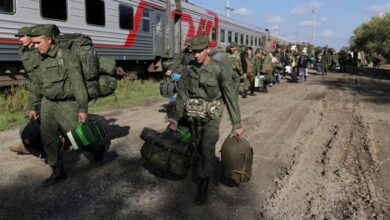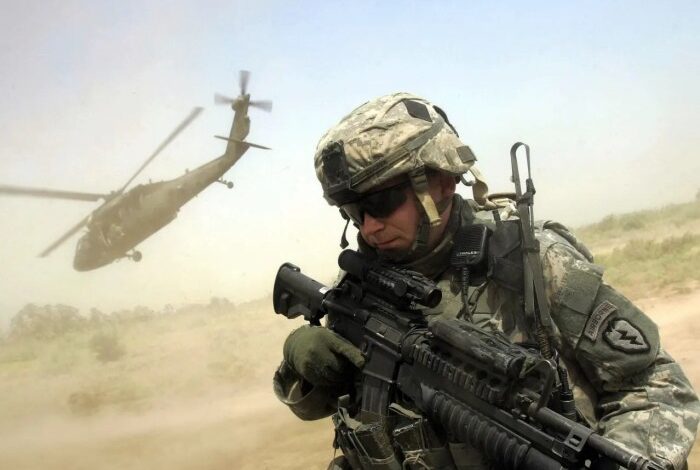
Iraq on the Verge of War: A Nation in Crisis
Iraq on the verge of war, a phrase that evokes images of conflict and turmoil, paints a stark picture of a nation grappling with a complex web of historical grievances, political instability, and economic hardship. The country’s history is littered with wars and foreign interventions, leaving behind a legacy of deep-seated divisions and a fragile sense of unity.
The US-led invasion of 2003, while initially intended to topple Saddam Hussein’s regime, unleashed a wave of sectarian violence and instability that has plagued Iraq ever since. The rise of extremist groups like ISIS, exploiting the power vacuum and deep societal fissures, has further exacerbated the situation, creating a volatile security environment and pushing the country to the brink of another major conflict.
Current Political Situation: Iraq On The Verge Of War
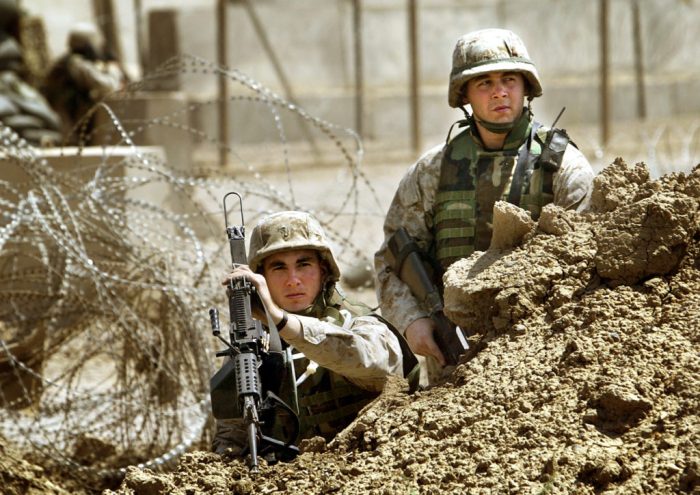
Iraq’s political landscape is complex and fragmented, characterized by a multitude of political factions with diverse interests and agendas. These factions often engage in power struggles, which can hinder efforts to address the country’s pressing challenges.
The Main Political Factions
The Iraqi political system is largely based on a sectarian power-sharing arrangement, with major political factions representing different religious and ethnic groups. The main factions include:
- Shia Political Parties:These parties, including the Dawa Party, the Supreme Islamic Iraqi Council (SIIC), and the Sadrist Movement, hold significant influence in the government and parliament. They represent the majority Shia population and often advocate for a stronger role for Shia Muslims in Iraqi politics.
- Sunni Political Parties:Sunni political parties, such as the Iraqi Islamic Party and the National Dialogue Front, represent the Sunni minority. They often seek greater autonomy and political representation for Sunni communities.
- Kurdistan Democratic Party (KDP) and Patriotic Union of Kurdistan (PUK):These two parties control the Kurdistan Regional Government (KRG) in northern Iraq. They advocate for Kurdish autonomy and have a strong presence in the Iraqi parliament.
- Other Factions:Other political factions, such as the Iraqi Communist Party and various secular and nationalist groups, also operate in the Iraqi political scene.
These factions often have competing interests, which can lead to political deadlock and instability. For example, Shia and Sunni factions have historically clashed over issues of power sharing and representation, while the KRG has sought greater autonomy, leading to tensions with the central government.
The Role of the Iraqi Government
The Iraqi government faces numerous challenges in addressing the country’s security challenges and promoting stability. These challenges include:
- Terrorism and Insurgency:Iraq continues to face threats from terrorist groups like ISIS, which have exploited political divisions and security weaknesses to carry out attacks.
- Sectarian Violence:The legacy of sectarian violence, fueled by the sectarian power-sharing system, remains a significant challenge to stability.
- Corruption:Widespread corruption within the government has undermined public trust and hindered efforts to provide basic services and promote economic development.
- Economic Challenges:Iraq’s economy has been severely impacted by years of conflict and instability, leading to high unemployment and poverty.
The Iraqi government has implemented various strategies to address these challenges, including security reforms, economic diversification, and efforts to combat corruption. However, these efforts have been hampered by political divisions, a lack of resources, and ongoing security threats.
Tensions between the Iraqi Government and the Kurdistan Regional Government (KRG)
The relationship between the Iraqi government and the KRG has been marked by tension and conflict. These tensions stem from:
- Disputes over Oil Revenue:The KRG has sought to control its own oil resources and revenues, which has led to disputes with the central government over the sharing of oil wealth.
- Kurdish Independence Aspirations:The KRG has pursued a path of greater autonomy, and some Kurdish leaders have expressed aspirations for independence, which has been met with resistance from the Iraqi government.
- Security Issues:The KRG has maintained its own military forces, which has raised concerns about potential security risks and challenges to the central government’s authority.
These tensions have resulted in a series of political and economic disputes, including the Iraqi government’s imposition of sanctions on the KRG and the KRG’s holding of an independence referendum in 2017, which was met with international condemnation.
Security Threats
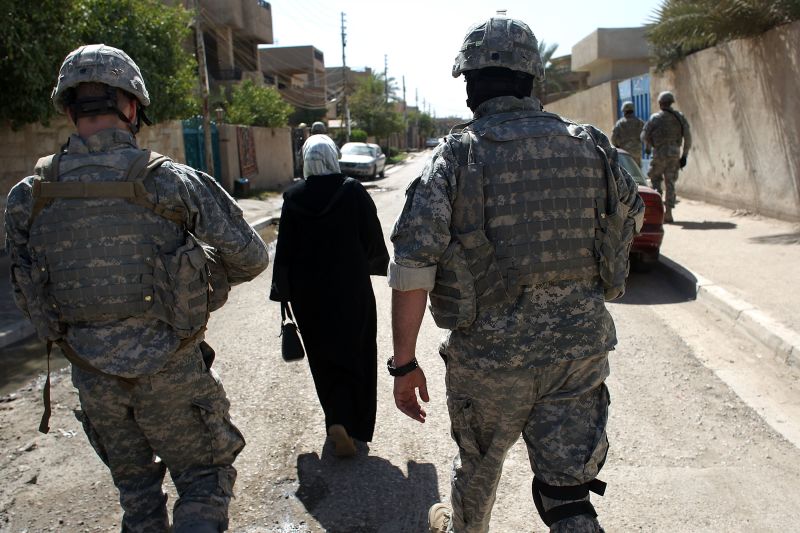
Iraq faces a complex tapestry of security threats, a legacy of decades of conflict, sectarian tensions, and regional instability. These threats undermine the country’s stability and hinder its progress towards a more secure and prosperous future.
Terrorism
Terrorism remains a significant threat to Iraq, with various groups operating within its borders. The Islamic State of Iraq and Syria (ISIS) has been significantly weakened but continues to pose a threat through sleeper cells and sporadic attacks. Other groups, such as the Mahdi Army, have also been involved in terrorist activities.
The presence of these groups is exacerbated by the porous borders with Syria and the presence of foreign fighters.
Sectarian Violence
Sectarian violence, a deeply rooted issue in Iraq, remains a source of instability. The country’s Shia-Sunni divide, exacerbated by the US invasion in 2003, has fueled violence and mistrust between communities. This violence can manifest in targeted killings, bombings, and widespread unrest, often fueled by extremist ideologies and political opportunism.
Regional Instability
Iraq is caught in the crossfire of regional power struggles, with neighboring countries vying for influence and supporting factions within Iraq. The ongoing conflict in Syria, the rise of Iran’s influence in the region, and the rivalry between Saudi Arabia and Iran all contribute to instability in Iraq.
The situation in Iraq feels eerily familiar. We’ve seen this movie before, the escalating tensions, the rhetoric, the looming threat of conflict. It reminds me of the tense standoffs with North Korea and their nuclear ambitions, a situation that’s been simmering for decades, a constant reminder of the destructive power of unchecked ambitions.
North Korea and nuclear weapons have been a constant source of global anxiety, and now, we’re facing a similar scenario in Iraq, where the potential for conflict hangs heavy in the air.
These regional dynamics create a complex environment where external actors can exploit existing tensions and undermine the Iraqi government’s authority.
The Role of Foreign Powers
Foreign powers play a significant role in both supporting and exacerbating security threats in Iraq. The US, through its military presence and support for Iraqi security forces, has aimed to stabilize the country. However, its intervention has also been blamed for exacerbating sectarian tensions and creating a power vacuum that allowed extremist groups to flourish.
Iran, through its support for Shia militias, has been accused of interfering in Iraq’s internal affairs and destabilizing the country. Similarly, Saudi Arabia’s support for Sunni groups has contributed to sectarian tensions and instability.
Effectiveness of Iraqi Security Forces
The Iraqi security forces have made significant progress in combating terrorism and restoring order, particularly in the fight against ISIS. However, they continue to face challenges, including corruption, sectarianism, and a lack of effective coordination between different branches of the security forces.
The effectiveness of the Iraqi security forces in combating these threats is also hindered by the lack of adequate training, equipment, and intelligence gathering capabilities.
Economic Challenges
Iraq’s economic landscape is marked by significant challenges, stemming from a combination of historical factors, political instability, and global economic pressures. The country’s heavy reliance on oil revenues, coupled with high unemployment, corruption, and the impact of sanctions and international pressure, creates a complex economic environment.
High Unemployment and Corruption
High unemployment is a major concern in Iraq, particularly among young people. This issue is exacerbated by corruption, which undermines economic growth and discourages investment. The lack of job opportunities leads to social unrest and contributes to instability.
The looming threat of war in Iraq casts a long shadow over the region, threatening to unleash another cycle of violence and instability. It’s a stark reminder of how conflict can squander precious resources, leading to a devastating loss of life and the destruction of infrastructure.
The potential for wasted wealth, capital, labor, and resources is a sobering thought, as outlined in this article on wasted wealth capital labor and resources. If the world fails to act decisively to prevent a conflict in Iraq, the consequences will be felt for generations to come.
Dependence on Oil Revenues
Iraq’s economy is heavily reliant on oil revenues, which account for a significant portion of its GDP and government income. This dependence creates vulnerability to fluctuations in global oil prices and economic shocks. The government has made efforts to diversify the economy, but these efforts have been hampered by corruption, political instability, and a lack of investment.
Impact of Sanctions and International Pressure
International sanctions and pressure have had a significant impact on the Iraqi economy. Sanctions have limited access to international markets and financial institutions, hindering economic growth and development. The government’s efforts to attract foreign investment have been hampered by concerns over corruption and political instability.
Government Efforts to Diversify the Economy
The Iraqi government has implemented various initiatives to diversify the economy and reduce dependence on oil revenues. These initiatives include promoting non-oil sectors such as agriculture, tourism, and manufacturing. However, these efforts have been hampered by corruption, political instability, and a lack of investment.
Regional Dynamics
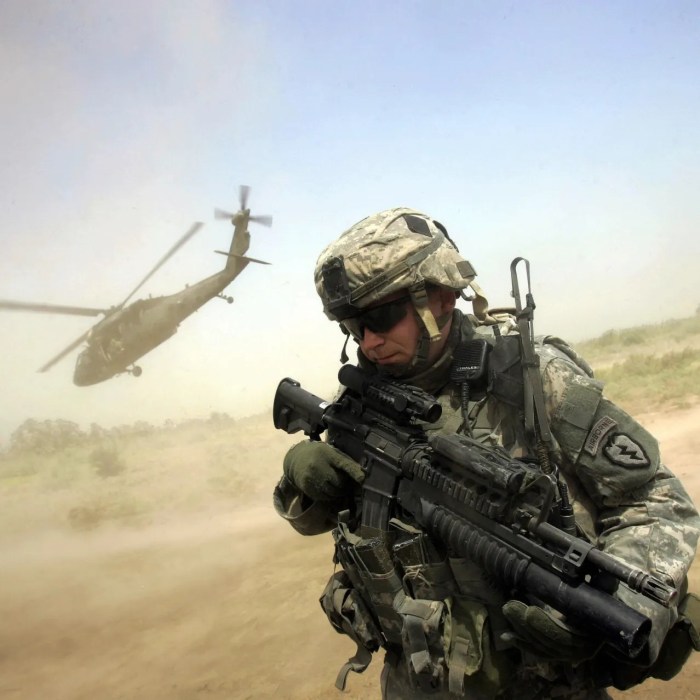
Iraq’s strategic location at the crossroads of the Middle East makes it a focal point for regional dynamics, with its relationships with neighboring countries and regional powers playing a significant role in its internal stability and security.
Iran’s Influence
Iran’s influence in Iraq is multifaceted and significant. The two countries share a long border and have deep historical, cultural, and religious ties. Iran’s support for Shia militias in Iraq, particularly those aligned with the Popular Mobilization Forces (PMF), has been a source of tension with the Iraqi government and the United States.
Iran has also played a key role in the Iraqi political process, supporting pro-Iranian political parties and figures.
Turkey’s Role, Iraq on the verge of war
Turkey, a NATO member, shares a long border with northern Iraq and has significant economic and security interests in the region. Turkey has launched military operations against Kurdish militants in northern Iraq, citing security concerns and the presence of the Kurdistan Workers’ Party (PKK), which Turkey considers a terrorist organization.
Turkey’s military presence and its role in the Iraqi political process have often been seen as a source of friction with the Iraqi government.
The Syrian Civil War and ISIS
The Syrian civil war and the rise of ISIS have had a profound impact on Iraq’s regional security. The porous border between Syria and Iraq allowed ISIS to establish a stronghold in both countries, posing a significant threat to regional stability.
The tension in Iraq is palpable, a powder keg ready to explode. It’s a stark reminder of the human cost of conflict, the shattered lives and broken bodies left in its wake. This is where the work of pharmaceutical corporations and medical research becomes crucial, developing treatments and technologies to heal the wounds of war.
Sadly, the need for these advancements is all too real in a world where the specter of conflict looms large, leaving a trail of devastation in its path.
The Syrian conflict has also contributed to the displacement of millions of refugees, many of whom have sought refuge in Iraq, putting a strain on the country’s resources and social fabric.
International Response
The international community’s response to the crisis in Iraq has been multifaceted, encompassing diplomatic efforts, humanitarian aid, and military support. The crisis has triggered a complex web of international engagement, highlighting the global implications of conflict in the region.
The Role of the United Nations
The United Nations has played a pivotal role in addressing the conflict in Iraq. The UN Security Council has passed numerous resolutions aimed at promoting peace and stability in the country. The UN Assistance Mission for Iraq (UNAMI) has been instrumental in supporting the Iraqi government in its efforts to rebuild the country and hold elections.
The UN has also been actively involved in humanitarian relief efforts, providing essential aid to displaced populations and vulnerable communities.
International Humanitarian Aid
The humanitarian crisis in Iraq has prompted a massive international aid response. Numerous international organizations, including the International Committee of the Red Cross (ICRC), the United Nations High Commissioner for Refugees (UNHCR), and the World Health Organization (WHO), have been working tirelessly to provide assistance to those affected by the conflict.
This aid includes food, water, shelter, medical supplies, and other essential necessities.
Military Support
The international community has also provided military support to Iraq in the fight against terrorism and the rebuilding of its security forces. The United States, the United Kingdom, and other countries have deployed troops to Iraq to assist in training and equipping Iraqi security forces.
The international coalition has also provided logistical and intelligence support to Iraqi forces.
Effectiveness of International Efforts
The effectiveness of international efforts to stabilize Iraq and promote peace has been mixed. While there have been significant achievements in areas such as humanitarian aid and the reconstruction of infrastructure, the country continues to face numerous challenges, including political instability, sectarian violence, and economic hardship.
The international community has faced difficulties in coordinating its efforts and achieving a unified approach to addressing the complex issues facing Iraq.
Future Prospects
The future of Iraq remains uncertain, fraught with complex challenges that could lead to either a return to large-scale conflict or a gradual path towards stability. The country’s political, economic, and security landscapes are intertwined, making it difficult to predict a definitive outcome.
Factors Contributing to Stability
The potential for stability in Iraq hinges on several key factors.
- Political Reform:Establishing a more inclusive and representative political system, one that addresses the grievances of various ethnic and sectarian groups, is crucial for reducing political tensions and fostering a sense of national unity. This includes ensuring fair elections, empowering local governance, and promoting dialogue and compromise among political actors.
- Economic Development:Addressing the country’s severe economic challenges, such as high unemployment, poverty, and corruption, is essential for improving living standards and reducing the appeal of extremist ideologies. This requires investments in infrastructure, education, and job creation, as well as measures to combat corruption and promote transparency in governance.
- Security Cooperation:Strengthening security forces and fostering collaboration among various security agencies, including the Iraqi army, police, and Kurdish Peshmerga, is vital for countering terrorism and maintaining law and order. This involves training, equipping, and providing logistical support to security forces, as well as addressing the root causes of insecurity, such as poverty and unemployment.
- Regional Cooperation:Resolving outstanding disputes with neighboring countries, particularly Iran and Turkey, and fostering regional cooperation are essential for promoting stability and reducing external influences. This requires dialogue and diplomacy to address shared concerns, such as border security, water resources, and economic development.
- International Support:Continued international support, including financial assistance, technical expertise, and political backing, is crucial for Iraq’s recovery and development. This includes providing aid for reconstruction, promoting good governance, and supporting efforts to address the root causes of conflict.



